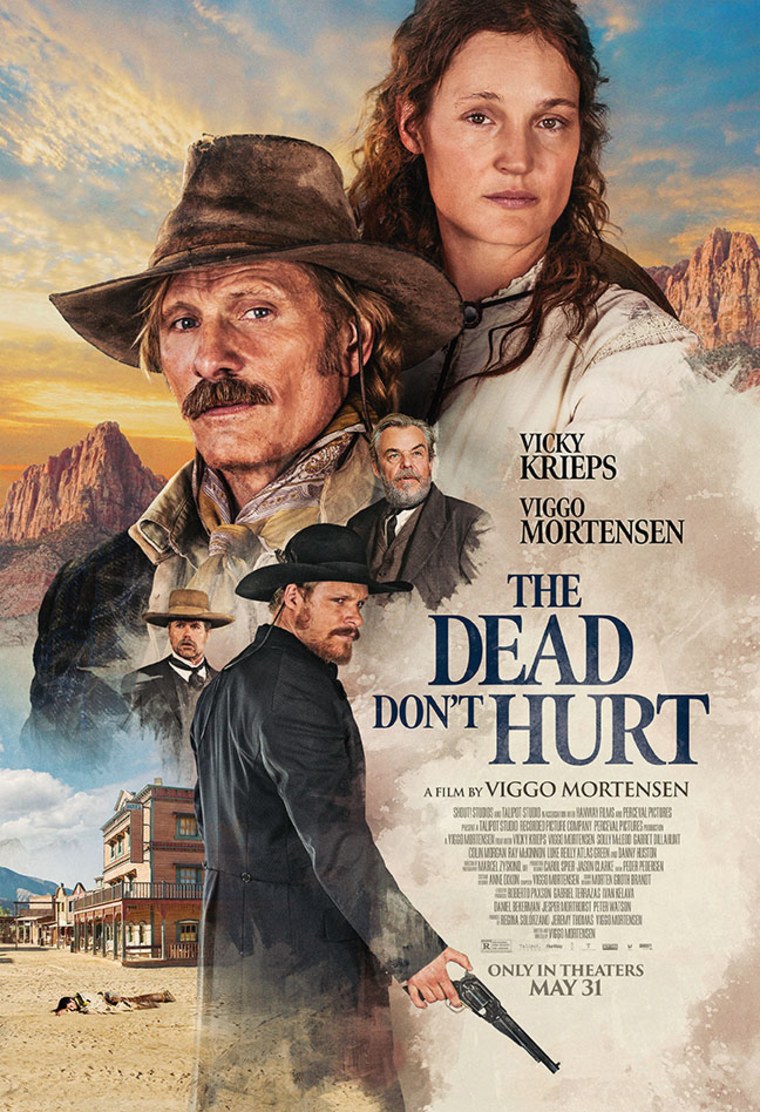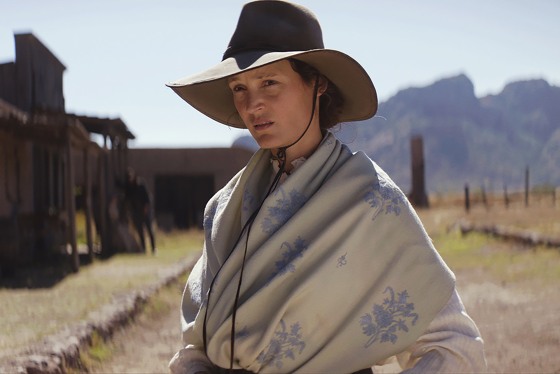It’s a genre steeped in ‘tough guy’ talk, violent tropes and wide-open vistas, but Viggo Mortensen’s new film out Friday, “The Dead Don’t Hurt,” departs from the conventional archetypes of a classic Western, starting with one significant shift: a female lead.
The film follows the unusual love story of two immigrants who settle in the American frontier town of Elk Flats, Nevada, amid the backdrop of the Civil War. Mortensen — who wrote, directed and composed the film’s score — plays Danish immigrant Holger Olsen. His character falls in love with Vivienne Le Coudy, a fiercely independent French-Canadian pioneer played by Vicky Krieps.
When Holger makes the fateful decision to enlist in the Union Army during the Civil War — a common course of action among immigrants at the time — the nonlinear narrative prioritizes Vivienne’s story of survival back home. She becomes the film’s central character, living and working independently, as well as defending herself despite enduring abuse and assault during Holger’s absence.
Mortensen and Krieps joined “Morning Joe” on Thursday to share their experiences making the film and the inspiration behind the unconventional Western. “The lead character in our story is Vivienne, and most Westerns don’t have a woman leading the way,” Mortensen told “Morning Joe” co-host Willie Geist. “It’s really a story about her and we stay with her … I wanted to explore what happens to women, girls, when their partners, their fathers, their sons go off and fight.”
Krieps compared the challenges her character faced to the responsibilities of modern women. “I think she goes through what many women go through now,” she told Geist. “It’s just a very universal female experience to be the one that stays behind and holds everything together, holds the family together, holds the whole village together.”

Krieps continued: “What I find most interesting about the film is that we don’t stay with her because she’s particularly strong — she’s not a hero — she’s just a woman … that’s what’s so respectful and beautiful.”
It’s the reason film producer Regina Solórzano joined the cast as well. “It employs that surface appearance of a western to speak of a revolutionized world, of a woman who, to me, seems to be quite ahead of her time, with a different perspective of what femininity is, what the role of a woman is,” Solórzano previously said. “She’s someone who is not in service of the existing social structures, and elects to be with a man who has the humility and capacity, despite his own patriarchal code, to respect that.”
As the film unfolds, we see Vivienne’s resilient and free spirit shine, starting with flashbacks of her childhood reading stories about Joan of Arc, and then as a young woman rebuffing the advances of a San Francisco aristocrat.
Later, when Holger returns from the war, he goes on a violent quest for revenge against those who harmed Vivienne. At the same time however, he and Vivienne must rebuild their relationship and reconcile with the person each has become after years of separation.
“The inspiration for Vivienne was my mom,” Mortensen said. “Like Vivienne and Vicky, [she was] strong-willed — had her own ideas about things — and I thought let’s put this story of Vivienne in that time … a place that’s lawless, that’s dominated by a handful of very powerful, unscrupulous men who are not averse to using violence to achieve their goals.”
It’s a societal pitfall Mortensen and Krieps find just as pervasive today as it was then.
“I’ve never felt [like] I’m in this other time, I’ve really felt like very much myself because even though I’m not struggling with the same situation, I feel like that very often — I’m still fighting against an invisible frontier, invisible enemies,” Krieps said. “I keep trying to understand who I am as a woman … what role am I supposed to play, who am I supposed to please or how independent can I be … I don’t even feel like it’s a historic movie, because it’s so like now.”
